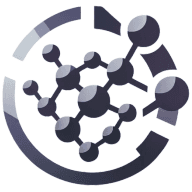6 Potential Applications of Nanotechnology in Medicine that Will Impact Healthcare
Revolutionary advances are emerging from the smallest scales, promising to change healthcare forever. In this post, six key experts—a Dentist and another professional specializing in smart implants—share their invaluable insights. Beginning with the potential for developing nanoscale dental materials, and concluding with the implementation of smart implants for monitoring, readers will explore a total of six compelling applications. Get ready to be astounded by the prospects of nanotechnology in medicine.
- Develop Nanoscale Dental Materials
- Deliver Drugs to Diseased Cells
- Revolutionize Diagnostic Tools
- Advance Regenerative Medicine
- Enhance Medical Imaging Techniques
- Implement Smart Implants for Monitoring
Develop Nanoscale Dental Materials
Nanotechnology is set to revolutionize many aspects of healthcare, and one of the most exciting applications in dentistry is the development of nanoscale dental materials. These materials could completely transform how we approach dental restorations, like fillings and crowns. Imagine if a filling could self-heal over time, addressing minor wear and tear without the need for invasive procedures. By embedding nanoparticles in dental materials, we could create restorations that are not only stronger but also more biologically compatible, potentially reducing the need for future interventions.
Moreover, nanotechnology could help us develop preventive care solutions, such as nanoparticle toothpaste or mouth rinses that actively repair enamel and fight decay at a microscopic level. The ability to treat oral health issues before they become major problems would reduce the frequency of procedures and improve long-term outcomes for patients. These innovations could shift the focus in dentistry toward prevention and maintenance, resulting in healthier smiles and fewer invasive treatments.

Deliver Drugs to Diseased Cells
One key application of nanotechnology in medicine is the delivery of drugs directly to diseased cells, effectively reducing harmful side effects. This targeted approach allows for more precise treatment of conditions like cancer. By using nanoparticles, medicines can be designed to act only on specific cells, sparing healthy tissues.
This method has the potential to improve the effectiveness of treatments while minimizing discomfort for patients. Everyone should advocate for more research in this area to transform how diseases are managed.
Revolutionize Diagnostic Tools
Nanotechnology can revolutionize diagnostic tools, making them ultra-sensitive and capable of detecting diseases earlier than traditional methods. Early detection of illnesses like cancer and infections can significantly improve treatment outcomes. By harnessing nanotechnology, medical professionals can identify diseases at their nascent stages, even before symptoms appear.
This early intervention can save lives and reduce healthcare costs. Promoting advancements in diagnostic technology is crucial for the future of healthcare.
Advance Regenerative Medicine
Regenerative medicine stands to gain tremendously from nanotechnology, especially through the use of nanomaterial scaffolds. These scaffolds can repair or replace damaged tissues, improving patients' healing processes. By mimicking the body's natural structures, nanomaterial scaffolds accelerate tissue regeneration and integration.
This can lead to faster recoveries and better patient outcomes, particularly in cases of severe injuries or degenerative diseases. Support advancements in nanomaterial research to enhance regenerative treatments.
Enhance Medical Imaging Techniques
Enhancements in medical imaging techniques are another promising field where nanotechnology is making an impact. Nanoparticles can improve the resolution of imaging devices, allowing doctors to see inside the body more clearly. This enhanced visibility helps in accurately diagnosing conditions and planning surgeries.
Improved imaging means better preoperative planning and more precise interventions. Encouraging innovation in nanotechnology-based imaging can lead to more accurate medical diagnoses.
Implement Smart Implants for Monitoring
Smart implants equipped with nanotechnology can continuously monitor the body's condition and respond in real-time. These implants can release medication or signal doctors when abnormalities are detected. This real-time monitoring ensures that health issues are addressed immediately, potentially reducing the risk of complications.
Smart implants are particularly beneficial for managing chronic conditions like diabetes or heart disease. Advocate for the development of such technologies to empower proactive healthcare management.

